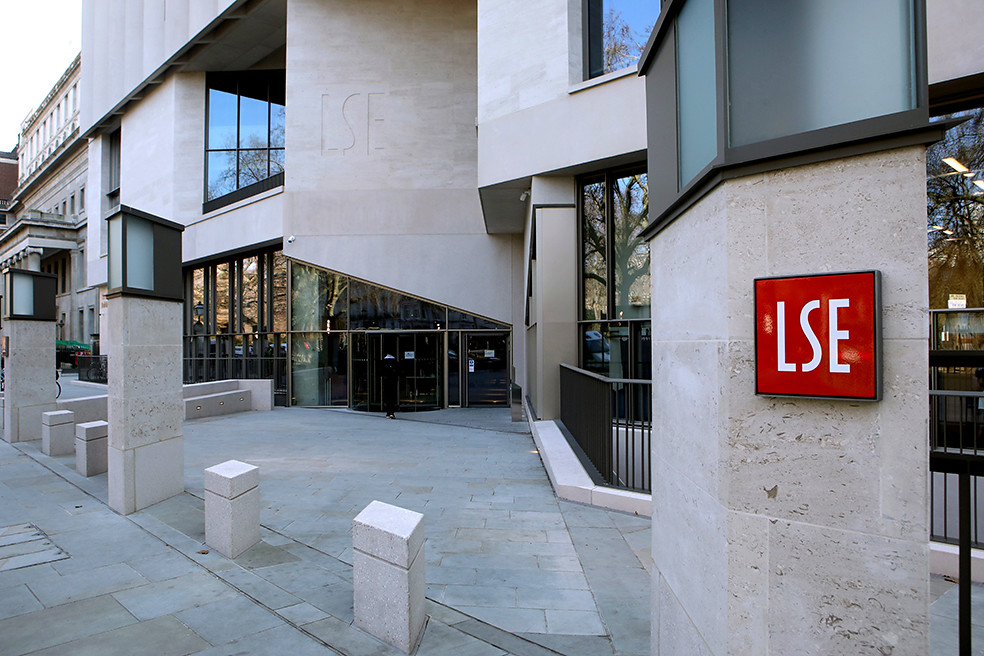


About The London School of Economics and Political Science (LSE)
The London School of Economics and Political Science (LSE) is a public research university located in London, England, founded in 1895. LSE was independently verified by BSI as the first carbon neutral university in the UK for all its measured emissions (against PAS 2060).
LSE has more than 11,000 students, and 3,300 staff. It had an income of £391.1 million in 2020/21, of which £32.8 million came from research grants. Recently, in the Complete University Guide 2023, LSE was ranked the top university in London, and third overall in the UK. Twelve LSE subjects also ranked in the UK top 10, with its Social Policy course taking the top spot for the subject area.
Internal changes
Each year, we form a ‘Green Team’ of staff from across the service to lead colleagues in completing actions from the NUS Green Impact workbook and instigate positive change across our day-to-day work. For instance, all meeting notes are digital, and printing is discouraged unless necessary. The Green Team also hosts presentations and ‘Lunch and Learn’ sessions to educate colleagues and ensure knowledge of sustainability best practice is shared across the team. Each year we aim to achieve the Platinum Award, the NUS Green Impact programme’s highest accolade.
Changes towards students
Gen Z is increasingly proactive in creating a more sustainable future, and that includes much of the student body at LSE – the School-wide projects being run by the student-led LSE Sustainable Futures Society are just one example, with other initiatives such as the LSE SU Green Week and eco-based volunteering opportunities continuing to be popular. In 2021, LSE Careers launched a two-week ‘Careers in Sustainability’ programme of events and resources for students. This included a launch event with LSE’s Head of Sustainability and a Sustainable Recruitment organisation, a panel with alumni working at leading UK B Corps, sessions with alumni working in sustainability-related roles, a carbon accounting skills workshop, a climate risk consulting case study session, and an employer presentation. We also partnered with student content-creators to create videos and podcasts around sustainability careers, and we published a new sustainability sector webpage. For this programme, two colleagues were recognised with an LSE Sustainability Award for Engagement and Leadership.
Change towards employers
Before on-campus employer events, we explicitly ask partner organisations to support LSE’s commitment to reducing environmental impact. To reduce waste, we encourage them to bring their own reusable coffee cups and water bottles, and to digitise surveys and promotional material using QR codes. We also ask employers to design banner stands that can be used at multiple events instead of a one-off that goes to landfill, and if employers are bringing freebies for students, we ask them to choose reusable merchandise (e.g. tote bags).
Results
At LSE Careers, we have integrated sustainability into many of our processes and have participated in the NUS’ Green Impact initiative for several years, achieving the Platinum Award for the past three years. Green Impact, along with impetus from LSE’s 2030 Strategy, has enabled us to review our operations, how we work with students and how we collaborate with external stakeholders such as employers.
Future
We see signing the Sustainable Recruitment Alliance pledge as publicising LSE Careers’ commitment to sustainable recruitment. The division’s management team supports our commitment to sustainability, exemplified in the expanding work we’re doing in this area. In joining the Sustainable Recruitment Alliance, we pledge to continue reviewing our practice, to reduce our environmental impacts, and report our activities to the Alliance on an annual basis.